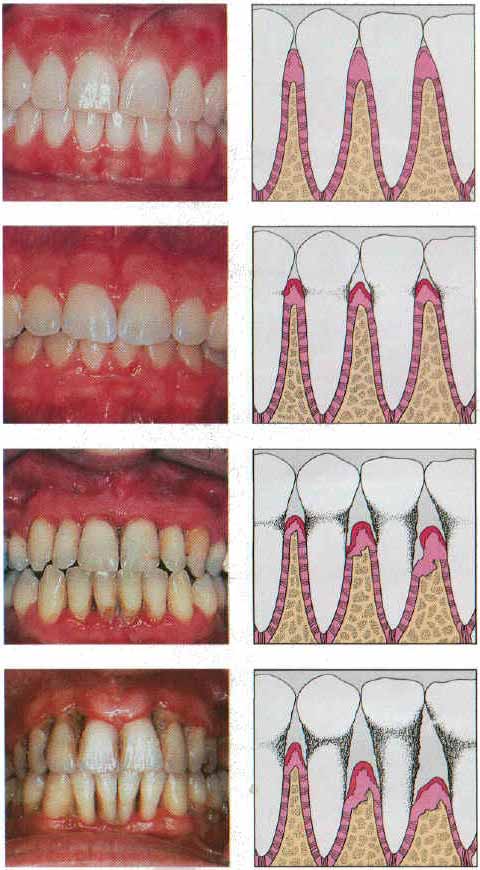Periodontal Disease
What is periodontal disease? It is an infection of the teeth, gums and the bone that surrounds the teeth, and it is the leading cause of tooth loss. Since it is a disease process created by the type of bacteria in your mouth it cannot be cured; it can only be controlled. The main cause of periodontal disease is the accumulation of plaque, the sticky film of food and bacteria that forms constantly on your teeth. The bacteria in the plaque produces toxins. These toxins, combined with our body’s reaction to them, destroy the bone around your teeth. Once this bone is lost, it never grows back on its own. If you have periodontal disease, you may be experiencing persistent bad breath, bleeding of the gums when brushing or flossing, soft, swollen, or tender gums, gums pulling away from the teeth, or loose teeth. It is also possible to have no symptoms. Stopping periodontal disease begins with a thorough diagnosis. We perform a thorough exam with a periodontal probe and with x-rays. The probe is a small measuring device that tells the doctor in millimeters how deep the pockets around the teeth are. A probe reading of more than 3 millimeters is a sign of periodontal disease. Once we have found periodontal disease we will discuss your treatment options with you as well as proper homecare to minimize bone loss and restore the health of your gums. Treatment of periodontal disease typically involves a procedure called scaling and root planing to clean the toxins off of the tooth and to smooth the roots. After a period of six weeks of healing we measure the pockets of the teeth again to verify healing occurred. If there are still problem areas, your doctor will discuss the treatment options you have to heal these areas. Typically these options consist of bone grafting, gum surgery, or some other option specific to you. Because periodontal disease cannot be cured it is critical that your home care is excellent and that you are monitored closely for relapse. This means the classic twice-a-year cleaning schedule is not safe for those who have periodontal disease. It is important that you come in every 3 months for a periodontal maintenance appointment. These appointments allow us to measure pockets, check for loose teeth or bleeding gums, remove plaque above and below the gumline, and talk to you about the effectiveness of your homecare. |

© Copyright, Gentle Family Dentistry





